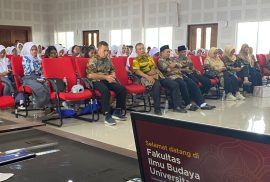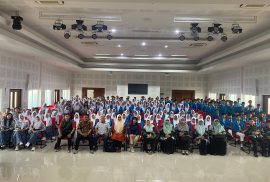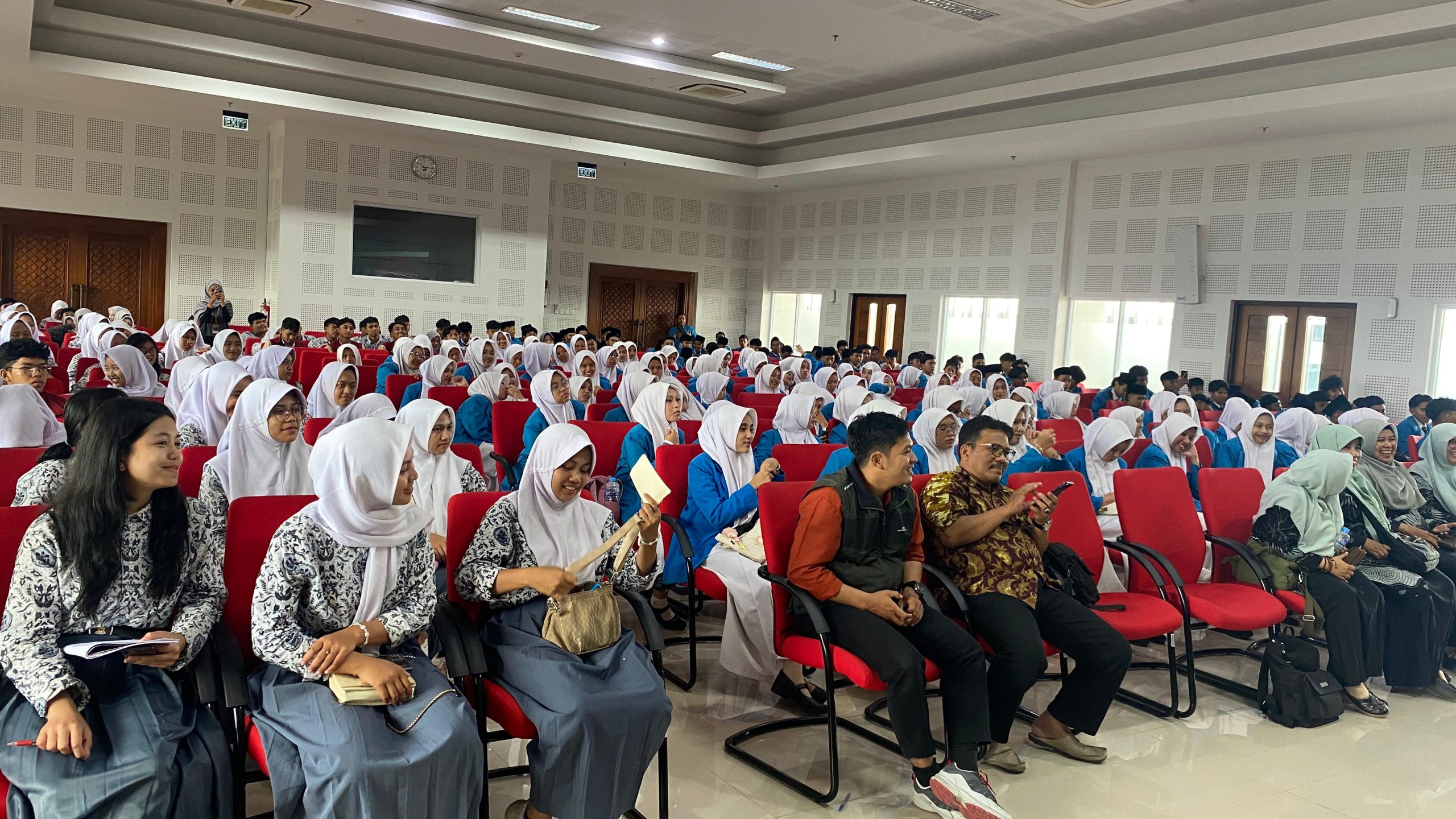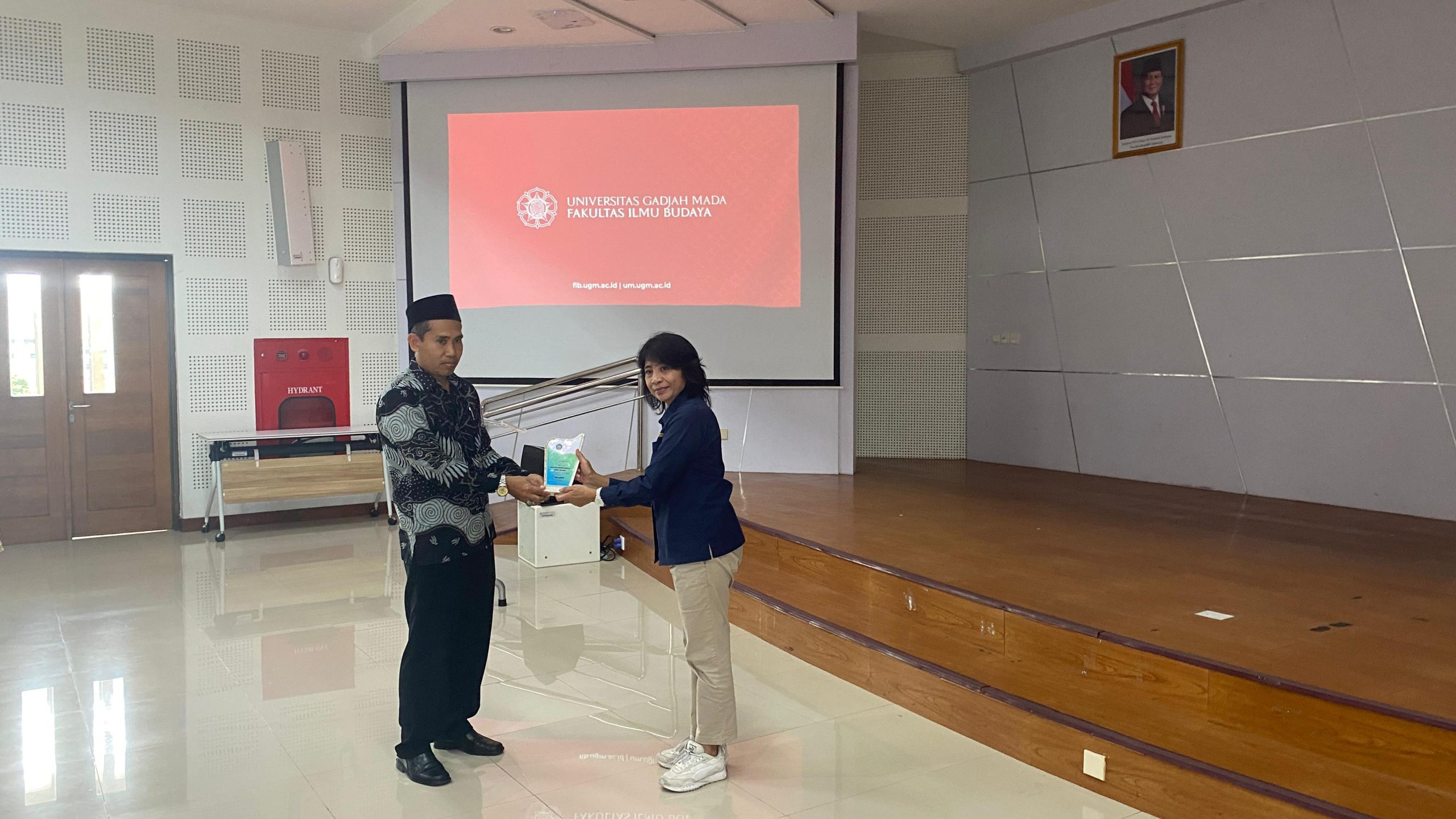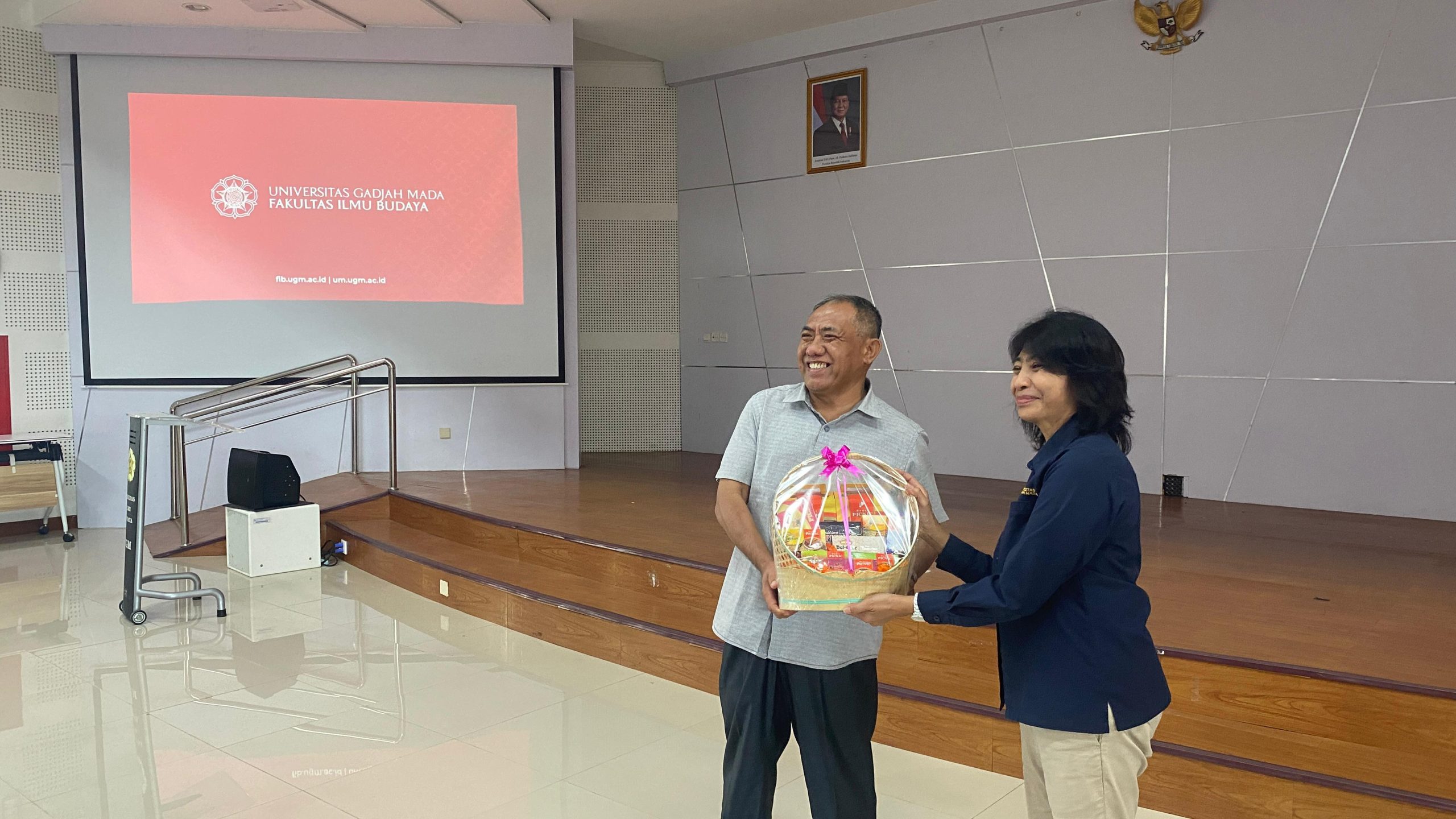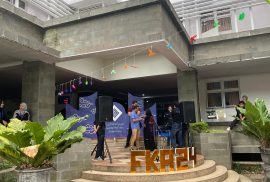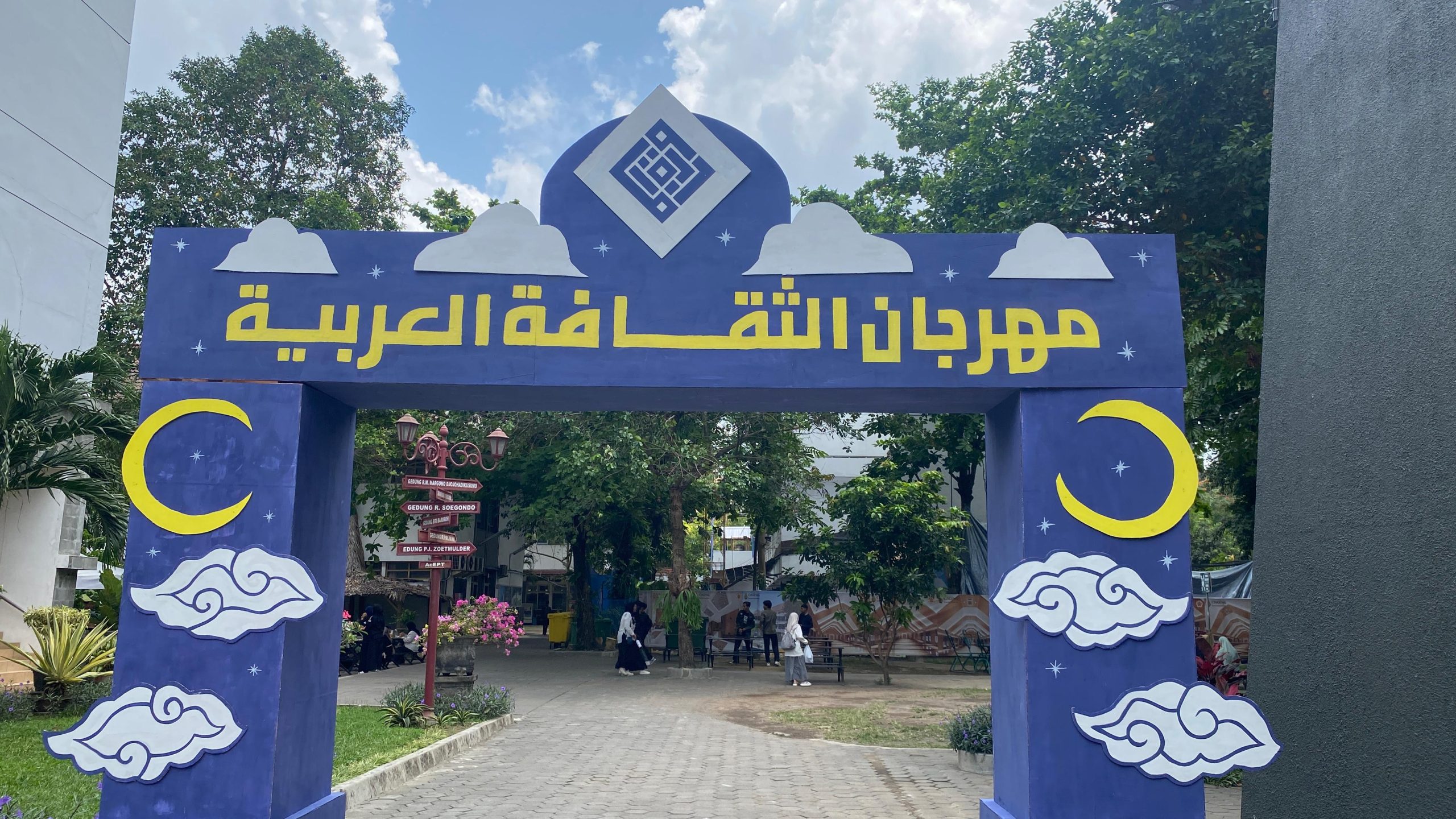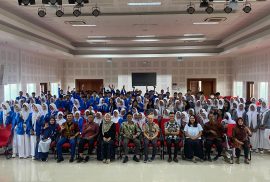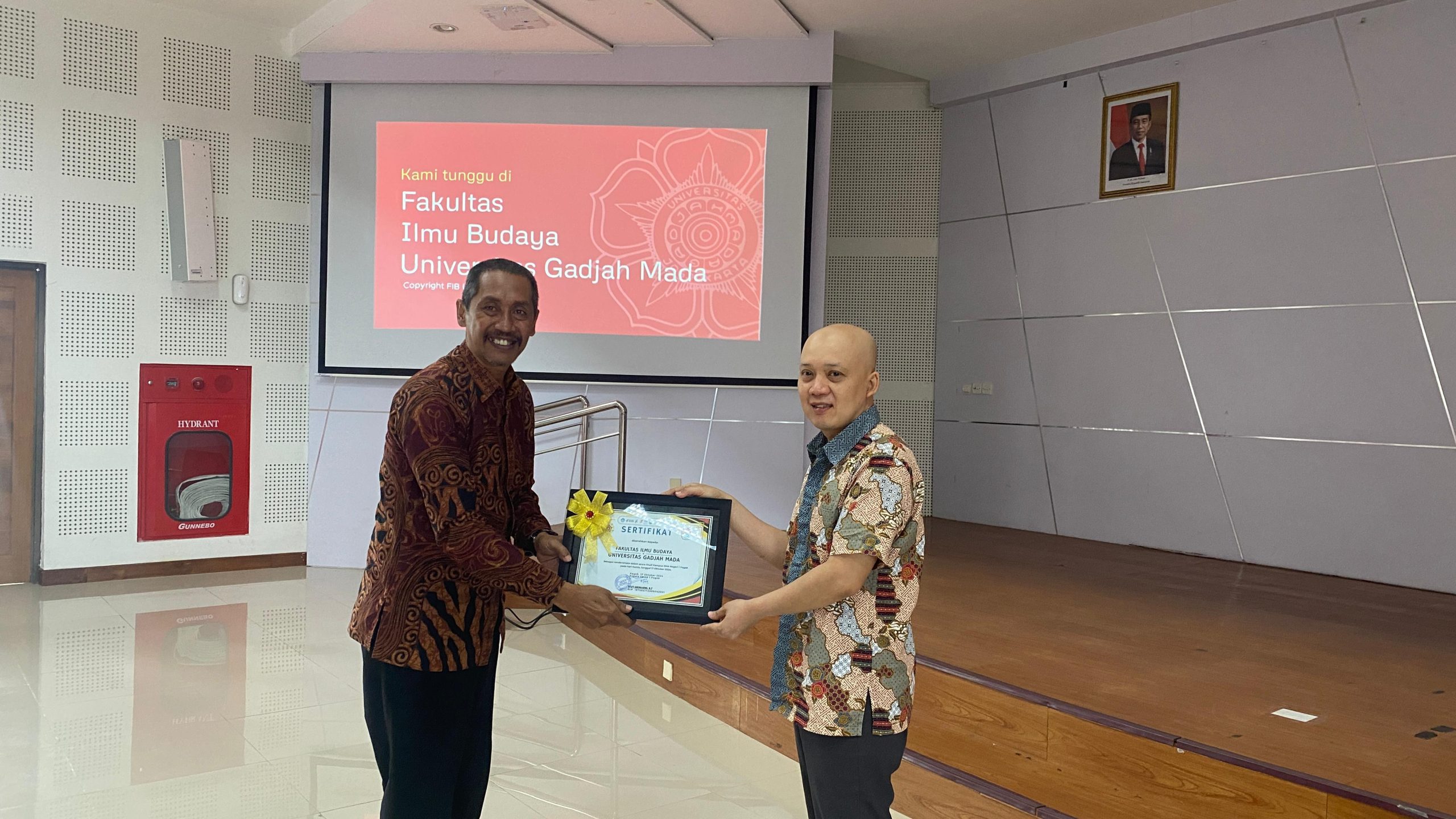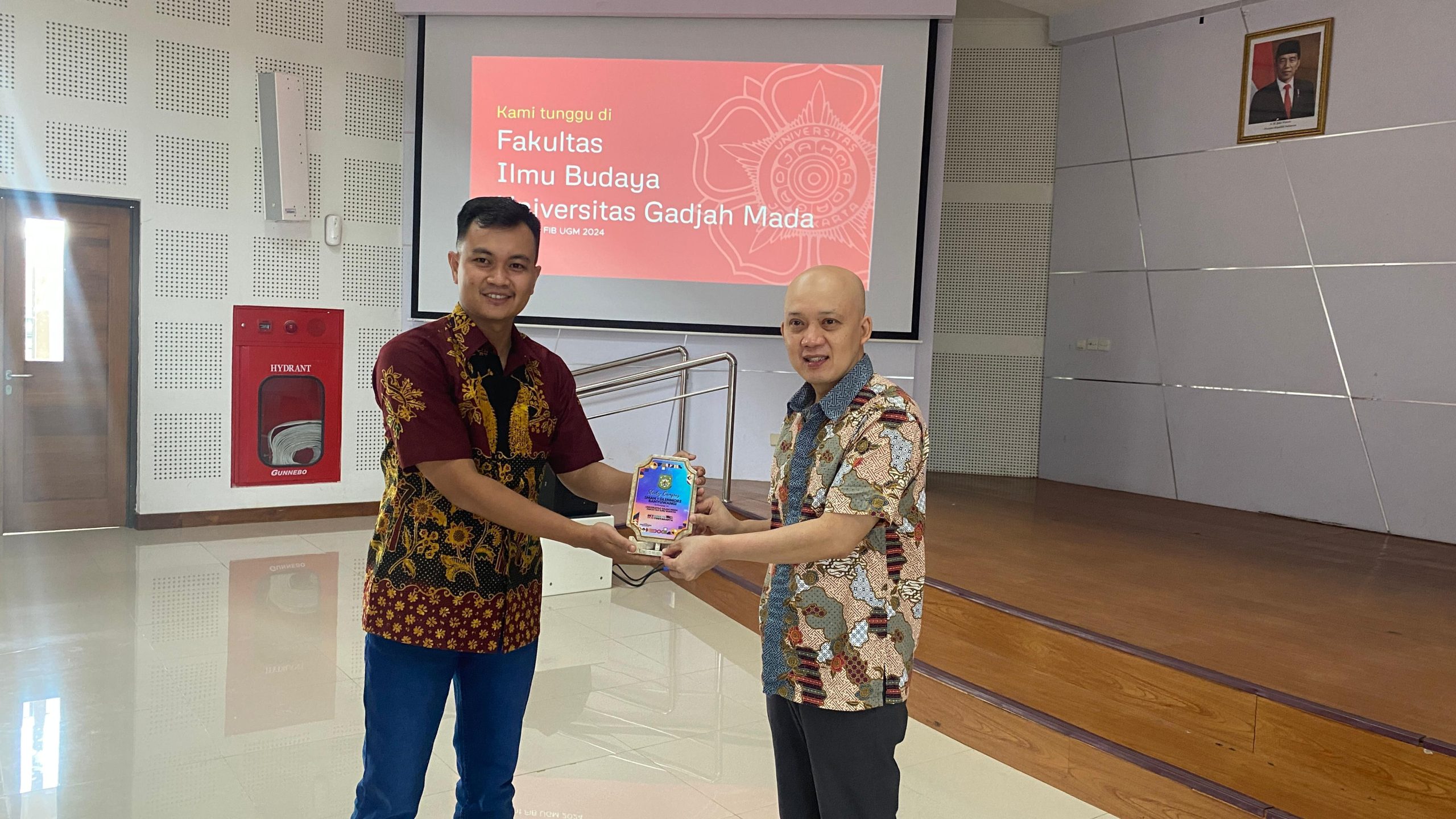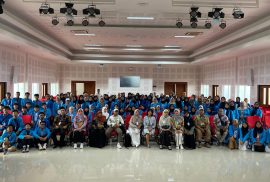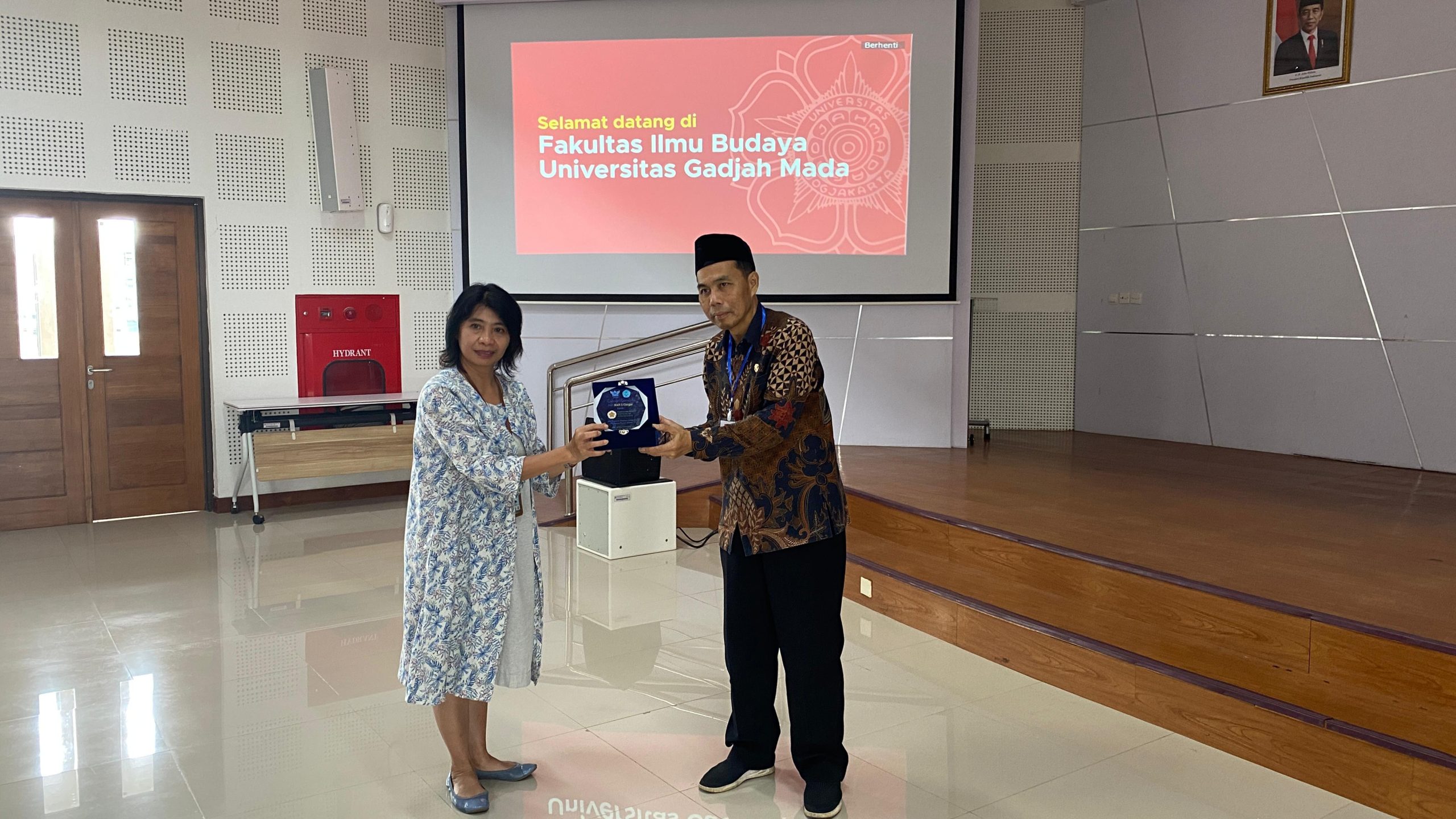Yogyakarta, November 6, 2024 – Faculty of Cultural Sciences (FIB) Universitas Gadjah Mada (UGM) received a visit from 280 students and accompanying teachers from SMAN 2 Cikarang Pusat. The event took place in the Auditorium on the 7th floor of Soegondo Building, and was warmly welcomed by representatives of undergraduate and postgraduate students as well as staff of Public Relations and Cooperation of FIB UGM.
In his speech, one of the teacher representatives expressed her gratitude for the friendly and enthusiastic welcome. “This visit is very impressive. We feel welcomed with a warm and pleasant atmosphere,” she said.
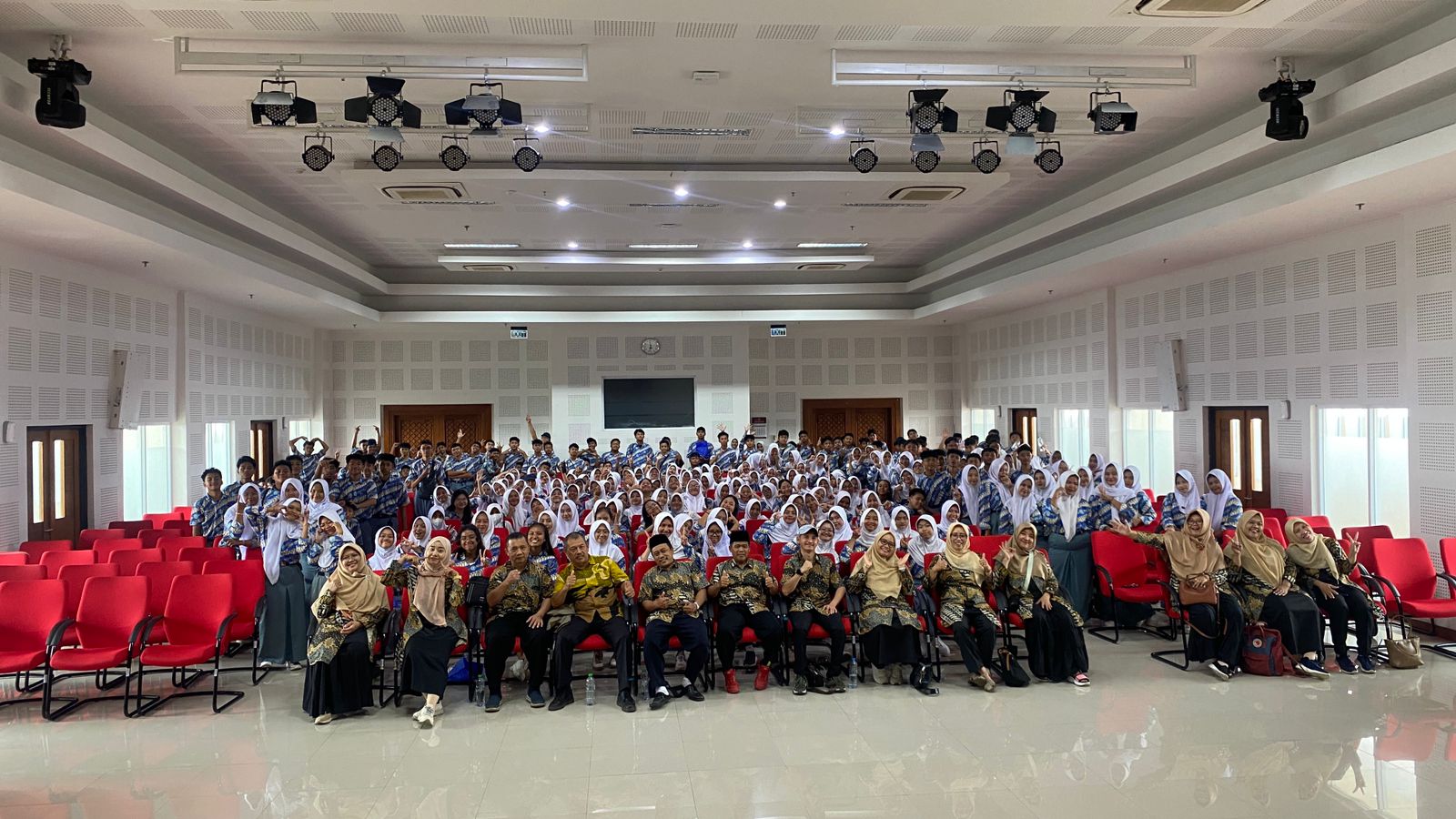
The question and answer session was interactive, discussing various aspects of the entry process to UGM. The students asked about various things, such as preparation for entrance tests, special portfolios, and the effect of school accreditation or alumni on graduation. The representative of the Faculty of Arts UGM explained that no special portfolio is needed, school accreditation does not affect the chances, and influential alumni are not a determining factor for graduation.
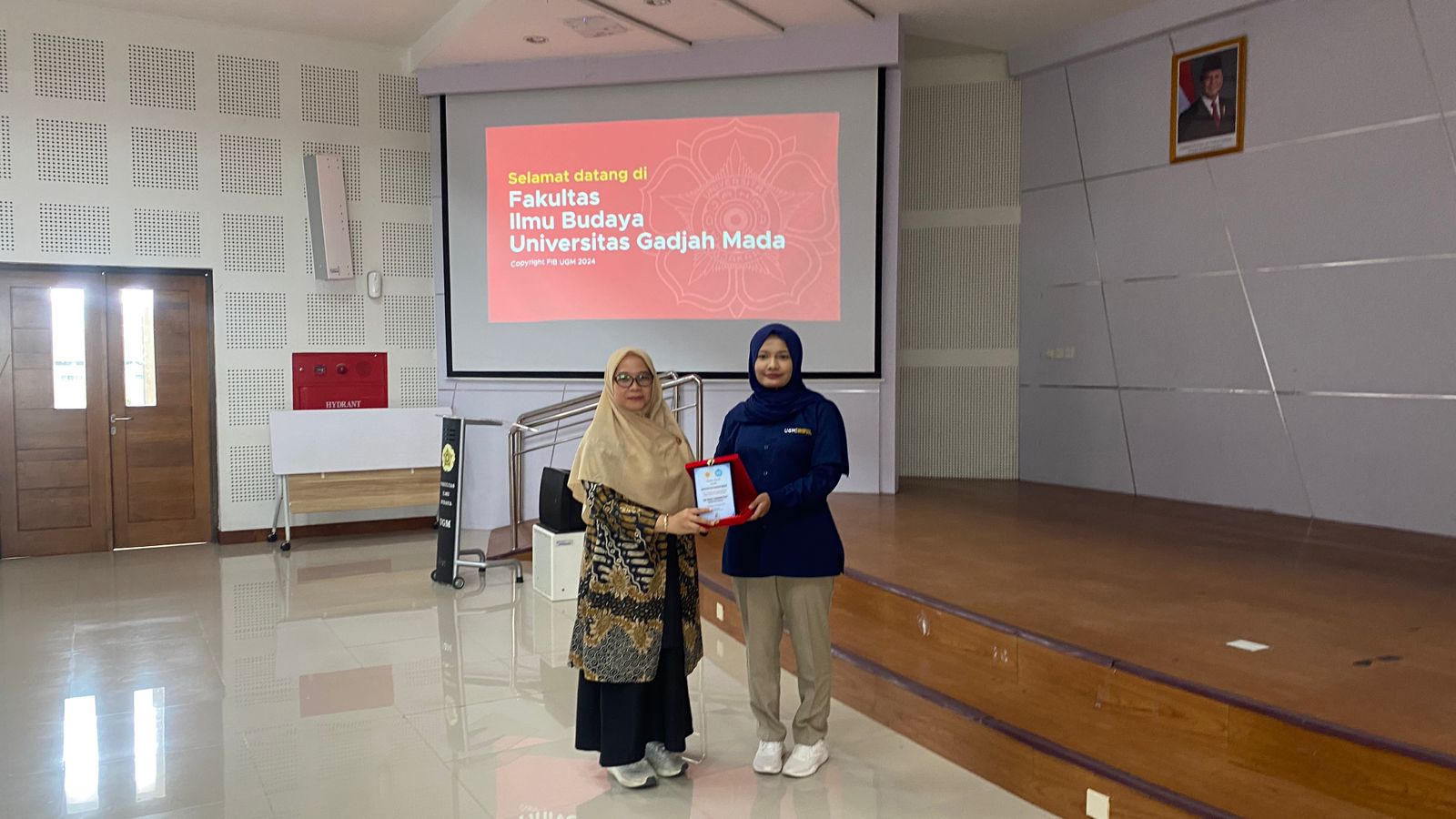
In addition, the discussion also covered the professions and careers of graduates, alumni who have successfully pursued careers in various fields, and how the faculty shapes students to face future professional challenges.
The event was closed with the handover of souvenirs, group photos, and casual conversations between students and faculty members that strengthened the atmosphere of intimacy. This activity is expected to motivate students to continue their studies to a higher level, especially at the Faculty of Humanities UGM.

